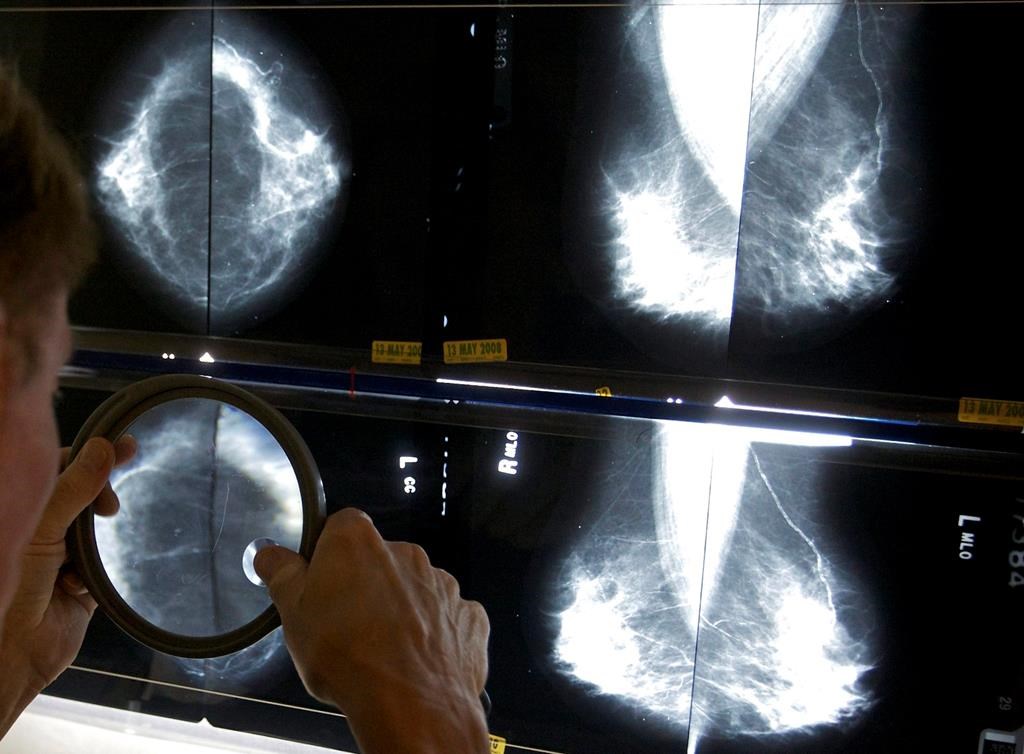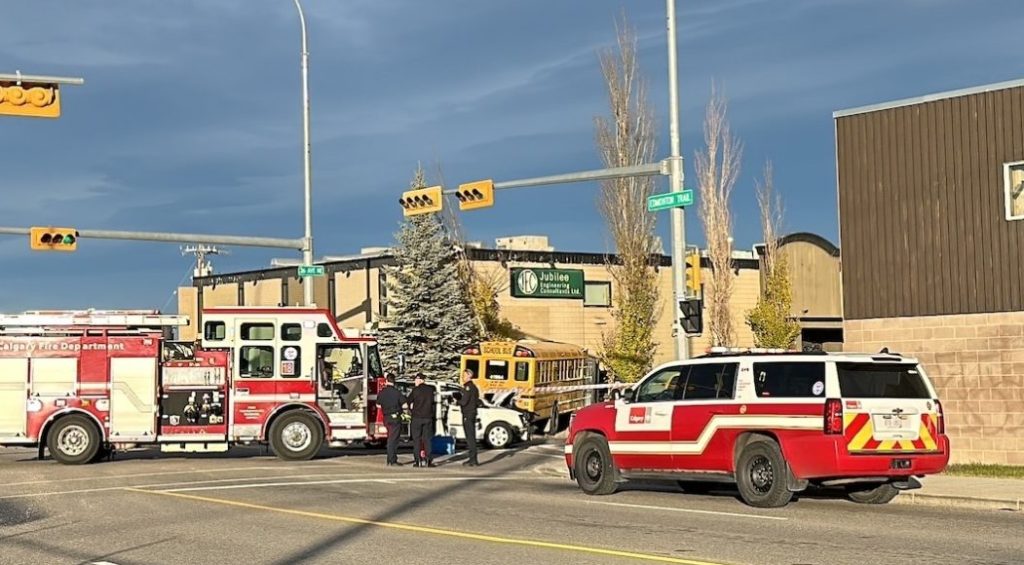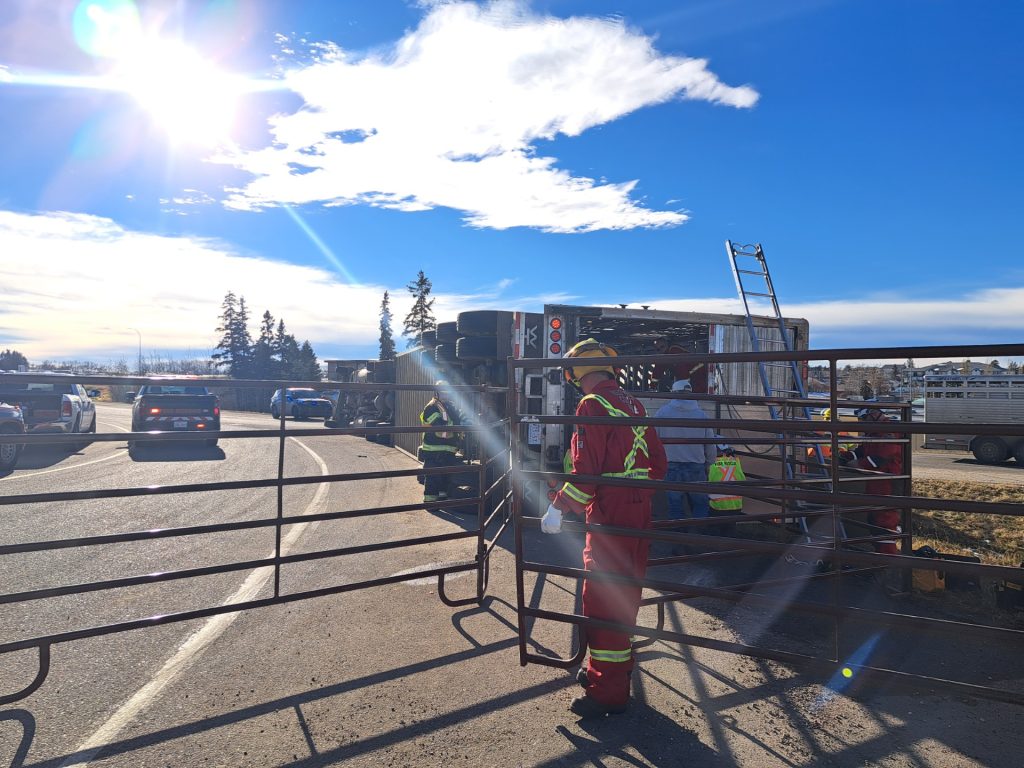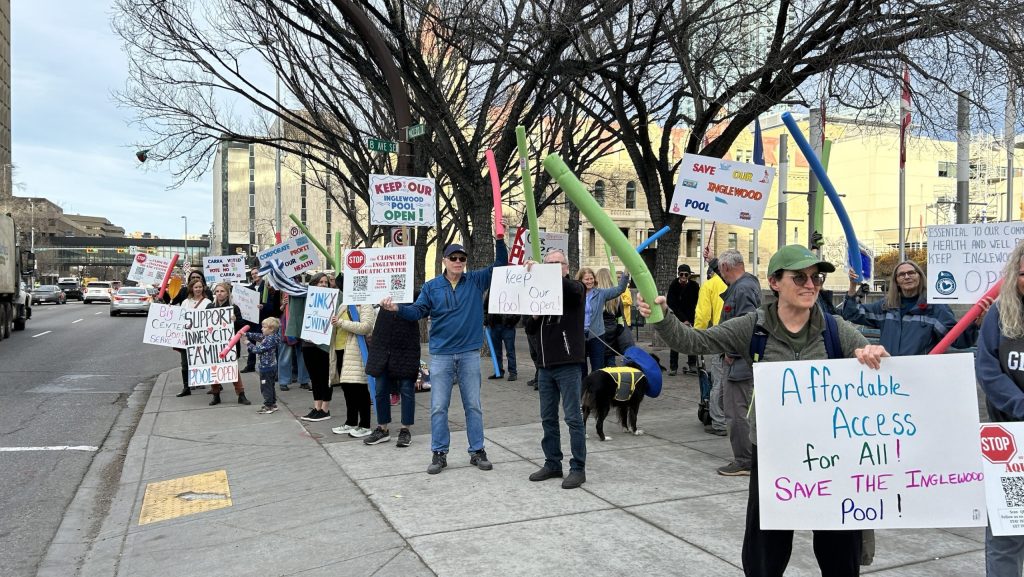Cancer care in Alberta is strained, under-resourced, medical association says

Posted May 17, 2024 10:35 am.
Last Updated May 17, 2024 5:43 pm.
Alberta doctors are raising the alarm about a critical shortage of cancer specialists, and the Alberta Medical Association says it’s costing lives.
AMA president Dr. Paul Parks says wait times have increased, delaying treatment.
“That means delays for Albertans — sometimes cancers that could have been curable are no longer curable because of the delays” he said. “They are seeing cases and examples where, because of delays cancers that were localized and easily treatable initially sometimes spread and it becomes not curable, and ultimately some people are succumbing because of delays and that’s why we’re raising the alarm.”
The AMA claims referral wait times for cancer care are “unacceptably long” and exceed Alberta’s benchmark target of four weeks; on average, it takes up to 13 weeks to be assessed by a radiation oncologist and up to eight weeks to be assessed by a medical oncologist.
And, only 60 per cent of the top five cancer surgeries — bladder, colorectal, breast, lung, and prostate — are performed within the province’s recommended target time.
Parks says delaying cancer treatment by just four weeks can increase a patient’s risk of dying by six to 13 per cent.
A cancer patient in Ontario is likely to be assessed by a doctor and start treatment four weeks from their referral date. In Alberta, that timeline is doubled. This is all exacerbated by the fact that as many as 800,000 Albertans don’t have a family doctor, meaning many are catching their cancer later.
In a statement to CityNews, Alberta’s health minister says she remains committed to ensuring Albertans receive the same care she did when she was diagnosed with cancer.
“As a cancer survivor, I know firsthand how scary that initial diagnosis can be,” says Adriana LaGrange. “This is why, as minister, I am committed to providing quality and accessible health care, including cancer prevention and screening, to all Albertans.”
Cancer is the leading cause of death in Alberta.
Recruitment and retention
Parks says a significant part of the problem is the lack of new oncology graduates staying in the province, and experienced ones leaving to work elsewhere.
In the last four years, just one in eight Alberta radiation oncology graduates and two of 17 medical oncology graduates have been recruited to practice in the province, with the majority being recruited to work elsewhere in the country.
Alberta is losing these specialized doctors due to failed recruitment efforts, low salaries, and high workloads, according to the AMA.
“We’re not even keeping the residents we’re training, they’re leaving,” Parks said. “That’s the definitive proof that we’re not competitive because even the residents in the skilled, skilled positions we’re training in Alberta are not electing to stay in Alberta, they’re going to other provinces like B.C. and Saskatchewan and Ontario, they’re not staying in Alberta.”
LaGrange says the government remains focused on hiring health professionals in areas of need.
“We’re working closely with the University of Alberta and the University of Calgary to increase the number of undergraduate medical training seats and residency positions,” she says. “This will enable more than 100 additional Alberta-trained physicians to practice annually.”
Alberta Health Services (AHS) says they continue to “aggressively” recruit staff, including oncologists, and have explored extending clinic hours when it is possible.
“Recruiting and retaining frontline healthcare staff is a challenge nationally, and not unique to Alberta,” reads a statement from AHS. “Demand for cancer care has steadily increased year after year and we are working to address this.”
AHS says they’ve now hired 17 full-time cancer care physicians starting this year and in 2025, and they’re expecting Calgary’s new cancer centre will attract more international experts.
The number of practicing oncologists in Alberta rose from 102 in 2013 to 122 in 2022, an increase of just 20 per cent.
At the same time, the number of new cancer cases rose 40 per cent each year.
Cancer cases expected to rise
This comes during a population boom for Alberta — more than 202,000 people came to the province last year alone.
The AMA says this puts a strain on the healthcare system.
Alberta’s population is also aging, according to the association, as the number of residents over 65 rises faster than any other age group.
It adds as of September 2022, more than 725,000 people in the province were over 65, and that number is expected to doubled by 2042.
Cancer can occur at any age, but the risk increases substantially as one ages.
A study published by the Canadian Cancer Society in 2023 predicts 93 per cent of new cancer cases in men and 87 per cent of new cancer cases in women will be diagnosed in Canadians 50 and older.
What needs to be done
The AMA says strategic and proactive recruiting needs to be undertaken to solve this problem, proposing following the models of Ontario and B.C., which have both done aggressive and successful recruiting campaigns
“We have to change this narrative, we have to make Alberta the most competitive and attractive place to come,” Parks said.
He adds that funding is also an issue.
Alberta’s Cancer Care workforces are employed by Alberta Health Services (AHS), which means money for new oncologists must be given agency approval, a process led by the government.
Concerns are also being raised about the province’s plan to restructure AHS, with some oncologists having indicated that it poses the risk of “greater governance instability and uncertainty at a time when the delivery of cancer care is already facing a crisis.”
The AMA is also calling for a comprehensive cancer care plan to lay out the government’s commitment to getting more oncologists in the province, address ongoing recruitment and retention issues, and foster strategic, long-term capital investments.
“We can’t afford to let this problem get any worse,” the association says.
-With files from Lisa Grant








